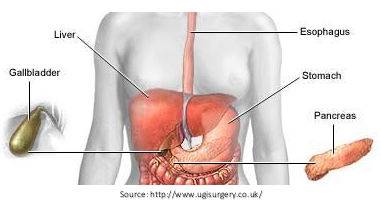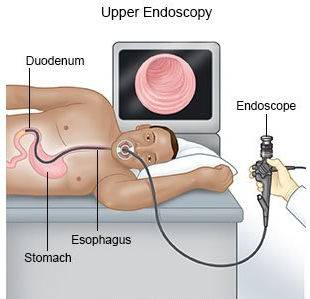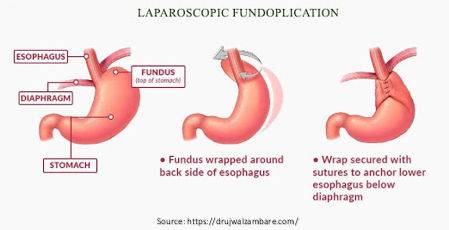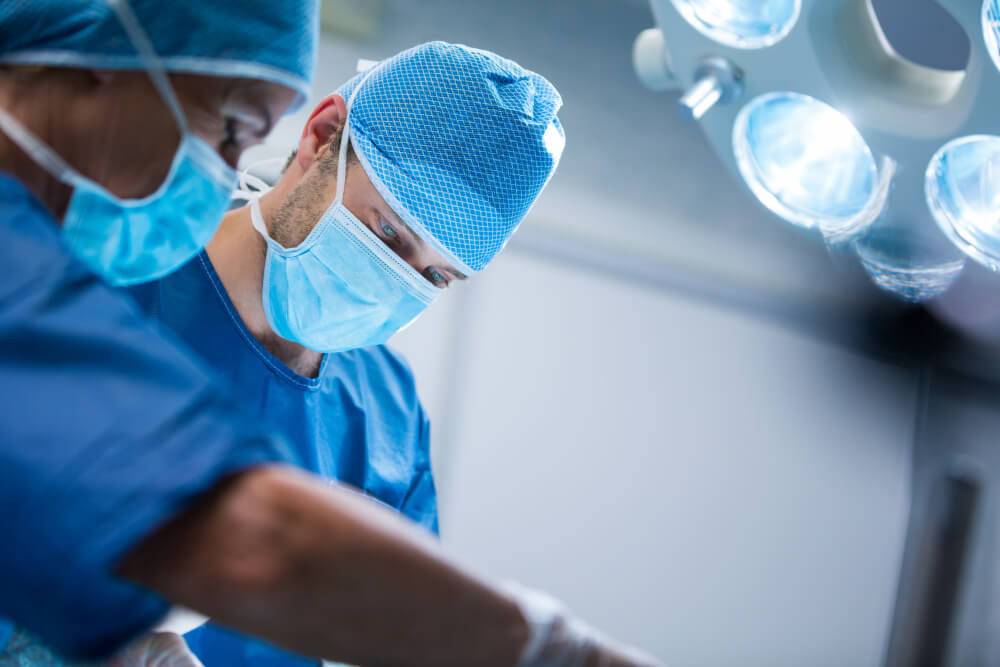- 079041 39064 Call Us Now
- gastrosamrat@gmail.com Email Us
- Home
- About
- Colorectal Surgery
- Laparoscopy
- GI Cancer Surgery
- Case Study
- Patients Corner
- Blogs
- Contact Us
Upper GI Surgery

Upper GI Surgery in Pune, India
Advancements in GI allow treating even complex diseases successfully and improve patients’ quality of life post-operatively.
Gastroenterology is the study of the function and conditions of the oesophagus, stomach, small intestine, pancreas, gallbladder, colon, and rectum.
Gastroenterologists specialize in diagnosing and treating diseases of the digestive system, i.e., the gastrointestinal tract. To adapt to the current changes, gastroenterologists must stay updated and abreast of the revolutionary transformations in the field.
This will have a favorable impact on the patients and their quality of life. Patients may benefit from new techniques and treatments.
Furthermore, the technology must be user-friendly and produce excellent results. Hence, gastroenterologists should remain updated on daily advances and therapies.
When undertrained surgeons perform minimally invasive procedures, there is an increased risk of severe complications. It can also put a patient’s life in danger. Therefore, you should always consult a seasoned GI surgeon.
Dr Samrat Jankar, a well-qualified and experienced surgical gastroenterologist in Pune, specializes in a wide range of complex GI tract surgeries. With 15+ years of expertise and vast knowledge, the doctor is an expert in conventional and advanced laparoscopic surgeries, which are minimally invasive techniques.
Dr Samrat Jankar is considered one of the best laparoscopic surgeon in Pune, Maharashtra for his expertise in handling complex cases with ease. Some of the upper gastrointestinal surgeries offered by Dr Samrat Jankar are:
- Laparoscopic Fundoplication
- Laparoscopic Diaphragmatic Hernia Repair
- Lap Duodenal Perforation Repair
- Laparoscopic TVGJ
- Lap Surgery for the Stomach and Esophageal Cancer
In this article, we will have a detailed discussion on upper GI surgery, its types, and more.
First, let’s know,
What is upper GI surgery?

Upper gastrointestinal (GI) surgery is performed to treat pathologies of the upper gastrointestinal tract (small bowel), oesophagus, liver, gall bladder, and pancreas.
The upper GI tract includes:
- The oesophagus (the food pipe).
- The stomach.
- The duodenum (first part of the small intestine).
Now, let’s understand,
Why or When do you need upper gastrointestinal (GI) surgery?
The upper GI tract is susceptible to several diseases requiring surgical intervention. Surgeons can perform upper GI surgery as:
- Oesophagectomy is surgery to treat oesophageal tumours. It entails the removal of all or portions of the oesophagus.
- Gastrectomy is a surgery to treat stomach tumours. This involves removing the total or partial stomach and adjacent lymph nodes.
- Minimally invasive laparoscopic or keyhole surgery is performed to resect (remove) stomach and oesophagal tumours.
Dr Samrat may recommend upper GI surgery if the patient experiences heartburn, abdominal pain, acid regurgitation, bloating, and difficulty swallowing that are not relieved by medicinal treatment.
Initially, the doctor examines the patient using several diagnostic techniques to detect the underlying conditions.
These symptoms are caused due to several conditions, such as:
- Inflammation of the stomach or duodenum
- H. pylori infection
Peptic ulcers - Gastroesophageal reflux disease (GERD)
- Oesophageal or stomach cancer
- Other diseases affect motility (ability to move) and the oesophagus function.
Stomach or oesophageal tumours can cause symptoms. Doctors may perform surgery to treat and manage cancer, depending on the location and stage of the disease.
How are upper GI conditions diagnosed?

- Upper GI endoscopy is a procedure used to diagnose and treat specific upper GI ailments or problems. It makes use of specialized equipment with a laser attachment and camera.
- Oesophageal pH monitoring measures the frequency of passage of stomach acid into the esophagus. Mostly, doctors use it to diagnose conditions such as gastroesophageal reflux disease (GERD).
Oesophageal manometry is used to analyze the sphincter’s function, the muscle at the lower end of the esophagus.
Your doctor may use these diagnostic techniques to evaluate some upper GI symptoms, such as:
- Swallowing difficulties
- Abdominal pain
- Benign or malignant tumors
Now, let’s take a look at the,
Different Types of Upper GI Surgeries

1. Laparoscopic Fundoplication:
It is a minimally invasive procedure used to treat gastroesophageal reflux disease (GERD), also known as acid reflux. If medications and lifestyle changes do not improve your condition, you may need this surgery.
Gastroesophageal reflux disease (GERD) is a condition wherein the stomach acids frequently flow back into your oesophagus. If left untreated, it can cause severe complications.
During fundoplication, the surgeon will wrap the upper part of the stomach around the lower part of the oesophagus and stitch it in place. This will tighten the valve between the stomach and the oesophagus.
It will also prevent the acid from backing up in the oesophagus. The surgeon will create small incisions in the abdomen during laparoscopic fundoplication surgery. Then, they will insert the camera and surgical instruments to operate on you outside.
After surgery, you will be hospitalized and discharged when you start drinking liquid. You can resume regular activities after a week, depending on your overall health.
2. Laparoscopic Diaphragmatic Hernia Repair:
Diaphragmatic hernia is a congenital condition resulting in a hole in the baby’s diaphragm. The organs in the abdomen can move through this hole into the baby’s chest.
The diaphragmatic hernia is a rare condition in adults. The onset of adult diaphragmatic hernia is mainly related to trauma and/or injury.
Diaphragmatic hernias, whether congenital or acquired, may need immediate surgery. The surgeon will move the abdominal organs from the chest and place them back in the abdomen during the procedure. Then, repair the diaphragm and reinforce the strength of the diaphragm with mesh.
3. Lap Duodenal Perforation Repair:
Duodenal Perforation is a transmural injury to the duodenal wall. It may occur due to peptic ulceration, trauma, iatrogenic causes, duodenal diverticula, autoimmune conditions, infectious disease, tumour, or chemotherapy. It may cause acute pain, less severe fistula, or abscess formation symptoms.
4. Laparoscopic TVGJ:
Truncal vagotomy and gastrojejunostomy (TVGJ) are some of the best options for surgical management of chronic duodenal ulcers (peptic ulcers).
Dr Samrat Jankar, a renowned laparoscopic surgeon in Pune, is an expert in this procedure. Surgeons also perform truncal vagotomy and gastroenterostomy for gastric outlet obstruction.
During truncal vagotomy, the surgeon will cut off one or more branches of the main vagus nerve that travel through the oesophagus to the stomach and other digestive organs. It helps to reduce stomach acids.
Gastrojejunostomy is a minimally invasive procedure. It involves creating a direct connection between the stomach and the jejunum (the middle portion of the small intestine), bypassing the starting portion of the small intestine.
5. Laparoscopic Surgery for Stomach and Oesophageal Cancer:
Like any other part of our body, even the GI tract is prone to cancers. It includes stomach cancer, oesophageal cancer, and GE junction cancers. Surgery is the most common treatment for these malignancies.
Dr Samrat Jankar, a seasoned gastroenterology surgeon in Pune, provides the best surgical treatment for stomach and oesophageal cancers. He is highly skilled in laparoscopic cancer surgery for the stomach and oesophagus.
During lap-assisted transhiatal esophagectomy, the surgeon will insert a laparoscope through a small incision made near the navel. Then, insert surgical tools through other small incisions in the abdomen.
The surgeon cuts the oesophagus from the stomach and then pulls the stomach through the hiatus in the diaphragm and connects it to the cut portion of the oesophagus.
Minimally invasive techniques like laparoscopic surgeries are a safe and effective alternative to conventional open surgery. Further, the laparoscopic approach significantly reduces postoperative complications and hospital stays.
Upper GI Surgery Aftercare
For a few weeks after upper GI surgery, patients may require assistance with heavy tasks such as buying groceries, gardening, or housework.
Some patients choose to stay with or have a relative or friend stay with them. Doctors urge patients to engage in regular, daily exercise to keep active. This reduces the risk of blood clotting in the legs.
Why Should You Choose Dr. Samrat Jankar for Upper GI Surgery in Pune?
- To become an expert in your profession necessitates years of training and experience; the same holds for Dr Samrat Jankar, a renowned gastroenterologist in Pune who has worked harder to achieve in-depth knowledge in his speciality.
- He specializes in upper GI surgery, bariatric surgery, HPB surgery, colorectal surgery, and laparoscopic surgery, among other procedures.
- Dr Samrat Jankar’s skill in laparoscopic and robotic surgery has transformed medical research and provided significant benefits to patients.
- He believes these improved surgical approaches lessen patient trauma and have fewer side effects.
- Due to his extensive expertise and understanding, Dr Samrat Jankar is considered one of the best gastroenterologists and a competent laparoscopic surgeon in Pune.
FREQUENTLY ASKED QUESTIONS
After an upper GI endoscopy, the patient can expect the following:
- Stay in the hospital or outpatient clinic for 1 to 2 hours after the procedure to allow the sedative to wear off.
- Bloating or nausea for a few hours after the procedure.
- Rest at home for the whole day.
Surgeons perform upper GI endoscopy for diagnosis and treatment of gastrointestinal diseases. Endoscopes help doctors insert medical equipment into the upper GI tract to rectify abnormalities. Patients experience minimal discomfort during endoscopy.
GERD is associated with several unpleasant symptoms that affect a patient’s normal lifestyle and routine. Its management necessitates immense efforts and lifestyle changes.
However, surgery can be the best option for some patients to develop the required barrier to prevent the food and/or acid from entering the oesophagus and causing any damage. Hence, upper GI surgery offers a long-term solution for GERD.
Compared to open, traditional GI surgeries, minimally invasive GI surgeries are more successful. Smaller incisions, improved magnification of tissues through the laparoscope, less blood loss, and faster recovery are reasons for this. Furthermore, these procedures allow the surgeon to approach the operative area with greater precision and accuracy. As a result, practically all GI procedures are recommended to be minimally invasive.
Surgeons perform upper GI endoscopy for diagnosis and treatment of gastrointestinal diseases. Endoscopes help doctors insert medical equipment into the upper GI tract to rectify abnormalities. Patients experience minimal discomfort during endoscopy.
Relevant Questions
Q. What is incarcerated hernia?
A section of the intestine or abdominal tissue that becomes trapped in the sac of a hernia—the bulge of soft tissue that pushes through a weak place in the abdominal wall—is known as an incarcerated hernia. Stool may not
Q. Hii I am an 18 year old male. I had an endoscopy 2 months ago which showed H.Pylori gastritis. My doc has prescribed me esomeprazole, antacids and rebamipide for 15 days. Is there any particular way I have to take these meds? Any possible interaction between the antacid and rebamipide?? My doc has not instructed me properly.
- Esoprazole should be taken before eating.
- Antacids should be taken after a meal.
- Rebamipide must be taken after eating.
Relevant Case Studies
Relevant Blogs
Book an Appointment
Enter details, our team would approach you to help you as soon as possible.
PEOPLE SPEAK ABOUT US
Siva Nagesh Kumar Mungala
Highly recommend it for gastric problems. You will get the right treatment at the right time. Labs are with highly skilled personal and developed. This is about medical advice… What I like more about Mr Samrat is….. He is so calm to listen to you. He will listen to your every silly doubt and give answers in a technical and polite way.
Sandeep Hirve
Accurate Diagnosis and skilled surgery with apt treatment made my life Normal. Thanks for your service &support.
Nikhilesh Kulkarni
Samrat sir is very intelligent and helpful person…… My mother is Heart patient ….. Operation was very critical … But the way he have handled that panic situation…. Hats off… 🙏🏻🙏🏻🙏🏻🙏🏻
Suresh Rajan
I took the treatment from Dr. Samrat in 2019 while he was in Chennai. A very caring Doctor and has a very good professional approach. He has helped me a lot to heal fast and better. His choice of words carries much empathy and care towards the patient, which is very difficult to find these days in the medical service. Trusting the Doctor and the treatment methods expedites the healing process; with Dr. Samrat, that comes naturally. I have all my respect and admiration for the Doctor.
Anand Tayade
Dr is very good, his advice me very good treatment, also he takes care in very well I really thankful to you sir.





